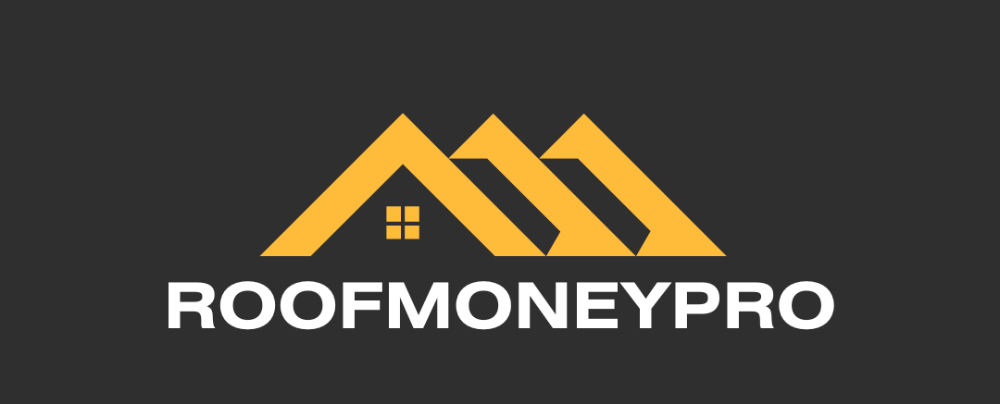Top 5 Low-Risk Investment Options for Roofing Professionals: Build Wealth Beyond Your Next Deal
Oct 29, 2025
You just closed a $25,000 roof replacement. Commission hits your account. Now what?
If you're like most roofing sales reps and contractors, that money either sits in checking earning nothing, gets reinvested into the business, or disappears faster than a tarp in a windstorm.
I've been there—riding the feast-or-famine cycle, thinking the next storm season would solve everything.
Here's what nobody tells you in this industry: your biggest financial risk isn't a slow season or lost deal. It's not building wealth outside of roofing.
Whether you're a W-2 rep banking on commissions or a business owner dealing with seasonal cash flow, you need investment strategies that work with your income—not against it.
Let's break down five low-risk options that help roofing professionals build real wealth, even when the weather doesn't cooperate.
High-Yield Savings Accounts: Your Storm Season Fund on Steroids
Every roofing professional knows the golden rule: cash reserves keep you in business. But where that cash sits makes all the difference between treading water and actually growing wealth.
Why this matters in roofing: Storm season hits, you're working 80-hour weeks, commissions are rolling in. Then winter comes, and those leads dry up faster than a roof in July. Having 3-6 months of expenses in a high-yield savings account isn't just smart—it's survival.
Current high-yield savings accounts are paying around 4.17% APY compared to traditional banks at 0.61%. On a $20,000 emergency fund, that's the difference between earning $834 versus $122 annually. That extra $712 covers your CRM subscription, marketing materials, or gas for site visits.
For roofing business owners: This is where you park money for equipment replacements, truck repairs, or bridging payroll during slow months. When your crew truck needs a transmission or you have to cover payroll before that insurance check clears, you've got liquid funds earning competitive returns.
For sales reps: Build your emergency fund here first. When you have a bad month or switch companies, you're not scrambling to pay bills. I keep mine with American Express—no monthly fees, FDIC insured up to $250,000, and instant transfers.
Pro tip: Don't waste hours chasing the highest rate. Find a solid option (4%+), set up automatic transfers from each commission check, and move on. Your time is better spent closing deals.
Money Market Funds: The Bridge Between Savings and Investing
Money market funds offer slightly better returns than high-yield savings while maintaining easy access to your cash. Banks invest these funds in ultra-safe securities like government bonds and certificates of deposit.
The roofing angle: Say you're saving for a down payment on your first investment property or planning to buy into a roofing business. You need that money accessible but growing faster than inflation. Money markets provide check-writing access, debit cards, and ATM withdrawals—though transfers might take a day or two.
Think of it as your "big opportunity fund." When a retiring contractor offers to sell you his book of business or a perfect rental property hits the market, you can access the capital quickly without penalties.
These aren't your wealth-building workhorses, but they're essential infrastructure for protecting purchasing power while keeping options open.
Certificates of Deposit: Lock In Returns During Peak Seasons
CDs pay fixed interest rates for set time periods—typically ranging from 3 months to 5 years. The longer the term, the higher the rate. They're FDIC insured and perfect for roofing professionals who want to lock away seasonal earnings.
Strategic use for roofing pros: After a massive hail storm or hurricane season, you might have $30,000+ sitting in your account. Instead of letting it lose value to inflation or risking impulse purchases on unnecessary equipment upgrades, lock it into CDs strategically.
CD Laddering for Seasonal Income:
This strategy gives you both better rates and regular access to funds:
Option 1: The Annual Ladder
- $5,000 in a 1-year CD
- $5,000 in a 2-year CD
- $5,000 in a 3-year CD
- $5,000 in a 4-year CD
- $5,000 in a 5-year CD
After year one, you've got money maturing annually. Reinvest it or use it for planned expenses like new equipment, marketing campaigns, or taking your family on that overdue vacation.
Option 2: The Monthly Ladder (for consistent cash flow)
- $2,000 in a 6-month CD
- Each month thereafter, open another $2,000 6-month CD
- After 6 months, you have money maturing monthly
Business owner scenario: You landed a commercial project that pays $50K upfront. Put $30K in a CD ladder. When tax time comes or you need to replace that aging ladder rack, the money's there with guaranteed returns.
Important: Understand early withdrawal penalties. Breaking a 5-year CD early might cost you 12 months of interest. No-penalty CDs exist but typically offer lower rates—weigh your options based on how certain you are about not needing the funds.
The downside? If rates drop when it's time to reinvest, your returns decrease. But in exchange, you get guaranteed, predictable growth—something rare in commission-based income.
Index Funds: Building Wealth While You Build Roofs
Here's where real wealth accumulation begins. Index funds track market indices like the S&P 500—basically owning tiny pieces of America's 500 largest companies. Instead of trying to pick winning stocks (which even professional money managers fail at 80% of the time), you're betting on the entire economy growing over time.
Why index funds are perfect for roofing professionals:
- Low maintenance: You're busy running appointments, climbing roofs, and managing crews. Index funds require minimal oversight—perfect for the "set and forget" approach.
- Low cost: Expense ratios as low as 0.03-0.10% mean more of your money compounds instead of going to fund managers.
- Diversification: One fund gives you exposure to hundreds or thousands of companies across multiple industries. When roofing slows down, tech might boom. When energy crashes, healthcare might surge.
- Long-term proven returns: The S&P 500 has averaged about 10% annually over the past 90+ years. Even with market crashes, patient investors win.
My setup: My entire investment portfolio is index funds. I hold funds tracking large-cap stocks (established companies), growth stocks (emerging companies), and international markets. This spreads risk across company size, industry, and geography.
For roofing sales reps: Start with your company's 401(k) if they offer one, especially if there's a match—that's free money. If not, open a Roth IRA and invest in a low-cost S&P 500 index fund. Even $200/month becomes substantial wealth over decades through compound returns.
For business owners: Beyond personal investments, consider parking business profits you don't need for 5+ years into index funds in a SEP IRA or Solo 401(k). Tax-deferred growth plus long-term appreciation is a powerful combination.
Dividend-focused index funds: Some index funds specifically hold "dividend aristocrats"—companies that have increased dividends for 25+ consecutive years. These provide steady income streams while still appreciating in value. The S&P Dividend Aristocrats fund (ticker: SPDAUDP) is one example.
The golden goose principle: When dividends start hitting your account, reinvest them automatically. That $47 dividend seems insignificant now, but reinvested, it buys more shares that generate more dividends. After 20-30 years, those reinvested dividends often represent 40-50% of your total returns. Don't kill the golden goose for a quick meal today.
Start simple: Pick one broad market index fund and invest consistently every month, regardless of whether the market is up or down. This "dollar-cost averaging" removes emotion and timing from the equation.
Target Date Funds: The Autopilot Retirement Plan
Target date funds are the ultimate "set and forget" investment for busy roofing professionals. These funds automatically adjust from aggressive growth to conservative preservation as you approach retirement.
How they work: Choose a fund matching your expected retirement year—say, "Target Date 2050" if you plan to retire around 2050. The fund automatically:
- Starts aggressive (80% stocks, 20% bonds) when retirement is far away
- Gradually shifts conservative (20% stocks, 80% bonds) as retirement nears
- Rebalances automatically—you never lift a finger
Perfect for roofing professionals because:
- No expertise required: Don't know the difference between small-cap and large-cap? Don't care about asset allocation? Target date funds handle everything.
- Automatic risk adjustment: As you get older and your body can't climb roofs like it used to, your investments automatically become more conservative to protect what you've built.
- One-fund solution: Instead of juggling multiple funds and rebalancing percentages, you invest in a single fund. Done.
Roofing sales rep scenario: You're 32 years old and just opened a Roth IRA. Choose a Target Date 2055 fund, set up automatic monthly contributions, and forget about it. Check it once a year, maybe. The fund does everything else.
Business owner scenario: You're 48, planning to sell your roofing business at 65. A Target Date 2040 fund automatically shifts from growth to preservation, ensuring that market crash at 64 doesn't destroy your retirement plans.
Watch the expense ratios: These range from 0.10% to 1.5%. A 1% difference might not sound like much, but on a $500,000 portfolio over 20 years, it's the difference between $1.6 million and $1.2 million. Choose low-cost providers like Vanguard, Fidelity, or Schwab.
Taking Action: Your Investment Roadmap as a Roofing Professional
The biggest mistake I see roofing pros make isn't picking the wrong investments—it's never starting at all. You survive another season thinking, "I'll invest when things stabilize," but they never do. Storm season hits, winter slows down, rinse and repeat for decades.
Your starting point depends on where you are:
If you're living paycheck to paycheck:
- Open a high-yield savings account today
- Save $1,000 for starter emergency fund
- Simultaneously start contributing to employer 401(k) if there's a match
- Build emergency fund to 3-6 months of expenses
If you have emergency funds but no investments:
- Maximize employer 401(k) match (free money)
- Open a Roth IRA and invest in a target date fund or S&P 500 index fund
- Contribute consistently—even $100/month compounds to $148,000 over 30 years at 10% returns
If you're a business owner with inconsistent cash flow:
- Maintain 6-12 months operating expenses in high-yield savings
- Create a CD ladder with excess profits from peak seasons
- Open a SEP IRA or Solo 401(k) and invest in index funds
- Pay yourself systematically and invest personally, not just in the business
The compound effect of consistent investing:
A roofing sales rep investing just $500/month from age 30-65 at a 10% average return accumulates $1.9 million. Miss the first 10 years and start at 40? You'll only have $680,000. Starting matters more than perfection.
Final thought: You work too hard climbing roofs, managing crews, and chasing leads to let inflation steal your purchasing power. Every commission check you don't invest is a future roof you'll have to climb because you can't afford to retire.
The roofing industry rewards hustle, but wealth building rewards consistency. Start with one of these five strategies today. Your future self—relaxing on that paid-off lakehouse instead of climbing ladders at 65—will thank you.
What's your first move? Open that high-yield savings account? Start the 401(k) contribution? The best investment strategy is the one you actually implement.
Now get out there, close some deals, and make your money work as hard as you do.


